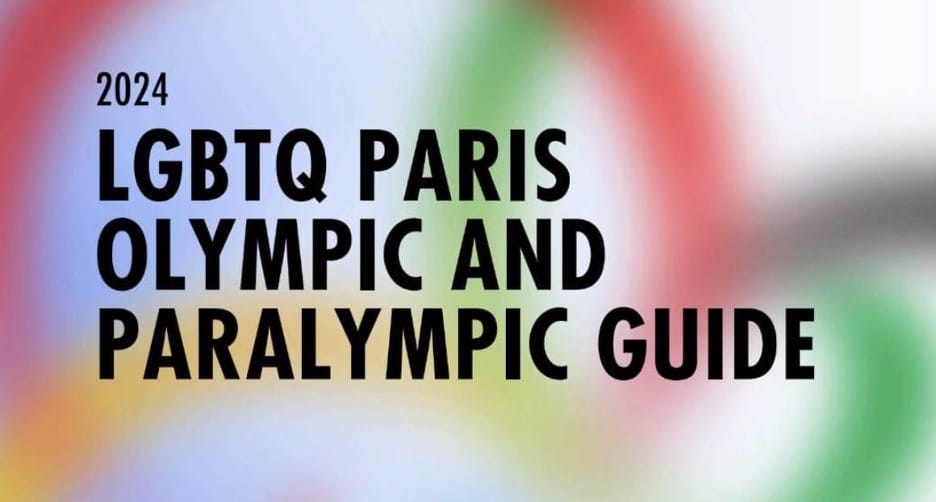Athlete Ally, GLAAD & Pride House Paris release LGBTQ+ Paris 2024 Media Guide

Thursday, July 11— Athlete Ally, GLAAD, and Pride House Paris announced the publication and release of a 2024 LGBTQ Paris Olympics and Paralympic Guide. The organizations created the guide to ensure inclusive, fair and accurate coverage of LGBTQ athletes and topics during the 2024 Summer Olympics (July 26-August 11) and Paralympics (August 28-September 8) in Paris, France.
The Olympic Games are a celebration of global unity, athleticism, and cultural diversity on the world’s stage. LGBTQ athletes have likely competed in the Olympics and Paralympics since the very first games in history. Today, more athletes than ever are comfortable being out as their true, authentic selves and are embraced and supported by fans, fellow competitors, and sponsors. Approximately 35 openly LGBTQ athletes competed in the 2022 Winter Olympic and Paralympic games in Beijing. A record setting 222 out athletes competed in the 2020 Tokyo Games.
The 2024 LGBTQ Paris Olympics and Paralympic Guide includes LGBTQ language, terminology and use-cases relevant to reporting on LGBTQ athletes at this year’s games in Paris as well as a comprehensive profile on more than a dozen out LGBTQ athletes to watch.
KEY POINTS AND DATA:
- Most Olympic and Paralympic fans and viewers support LGBTQ athletes.
- According to research by MRI-Simmons, 80% of Americans believe the Olympics is a powerful cultural event.
- More than two-thirds (68%) of Americans believe that all athletes, regardless of sexual orientation or gender identity, should have a chance to compete at the Olympics and Paralympics.
- 58% of Americans believe that LGBTQ athletes are a good representation of their country. Additionally, seeing LGBTQ Olympic and Paralympic athletes competing builds understanding and awareness.
- More than 40% of Americans say that seeing LGBTQ Olympians make[s] them interested in local policies concerning LGBTQ athletes.
- France’s LGBTQ policies are generally considered inclusive, and Paris in particular has a lively queer community, yet LGBTQ athletes continue to need support and resources in order to combat a rise in anti-LGBTQ rhetoric and attacks – A 2023 report released by French LGBTQ organization SOS Homophobie shows that the group saw a 28% increase in physical attacks against LGBTQ people and a 26% increase in transphobic incidents in 2022.
Additionally, the 2024 LGBTQ Paris Olympics and Paralympic Guide provides guidelines and best practices for reporting on transgender and nonbinary athletes.
It is critical that the media recognize and report that transgender people have always existed throughout history and across cultures. There is no evidence that transgender athletes have unfair advantages, or that they are dominating—or ever will dominate—sports. A recent study commissioned by the IOC and carried out by the University of Brighton shows that athletes who are trans women are at a relative disadvantage in various key physical areas. The 2020 Tokyo Games was the first time any out transgender athletes have qualified for the games in almost 20 years of Olympic policy.
Olympic policies on transgender athletes are also included in the 2024 LGBTQ Paris Olympics and Paralympic Guide.
Download the full guide in English (PDF)
Download the full guide in French (PDF)